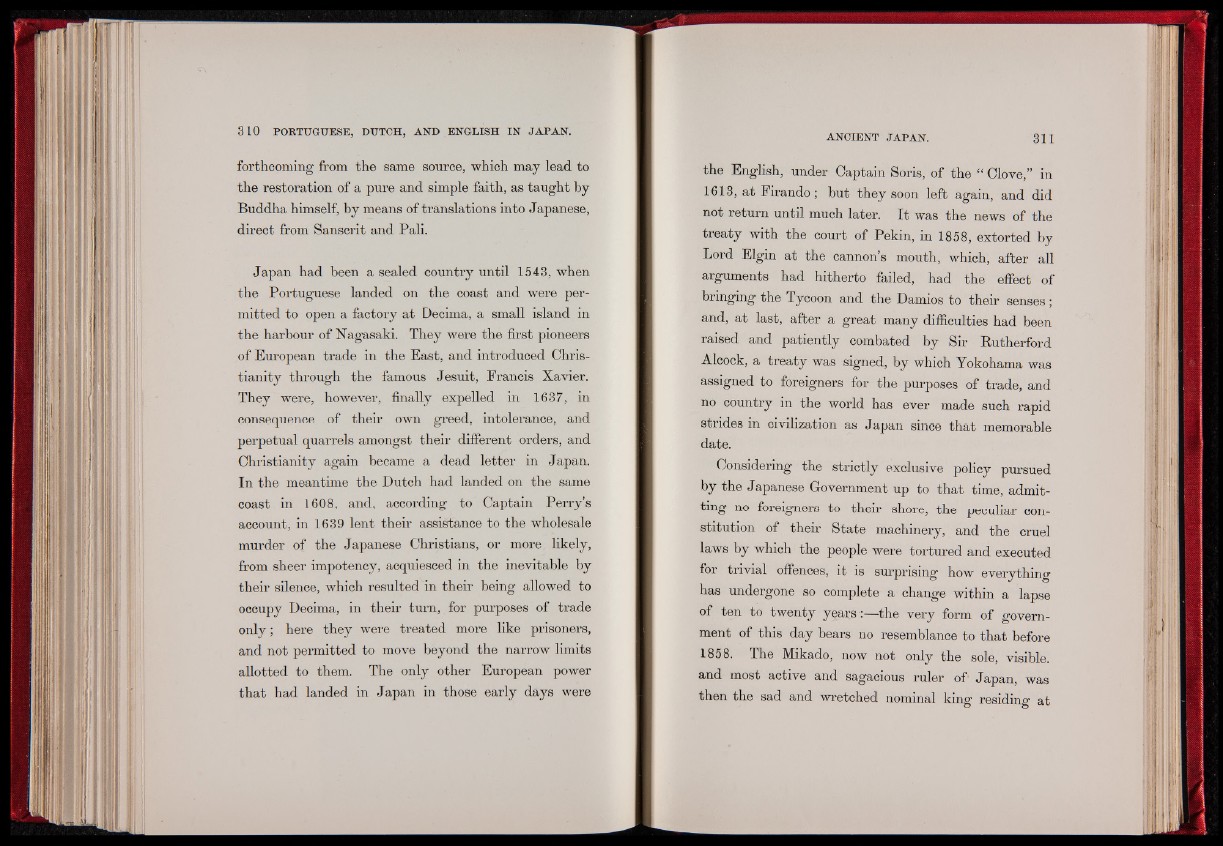
forthcoming from the same source, which may lead to
the restoration of a pure and simple faith, as taught by
Buddha himself, by means of translations into Japanese,
direct from Sanscrit and Pali.
Japan had been a sealed country until 1543, when
the Portuguese landed on the coast and were permitted
to open a factory at Decima, a small island in
the harbour of Nagasaki. They were the first pioneers
of European trade in the East, and introduced Christianity
through the famous Jesuit, Francis Xavier.
They were, however, finally expelled in 1637, in
consequence of their own greed, intolerance, and
perpetual quarrels amongst their different orders, and
Christianity again became a dead letter in Japan.
In the meantime the Dutch had landed on the same
coast in 1608, and, according to Captain Perry’s
account, in 1639 lent their assistance to the wholesale
murder of the Japanese Christians, or more, likely,
from sheer impotency, acquiesced in the inevitable by
their silence, which resulted in their being allowed to
occupy Decima, in their turn, for purposes of trade
only; here they were treated more like prisoners,
and not permitted to move beyond the narrow limits
allotted to them. The only other European power
that had landed in Japan in those early days were
the English, under Captain Soris, of the “ Clove,” in
1613, at Firando ; but they soon left again, and did
not return until much later. I t was the news of the
treaty with the court of Pekin, in 1858, extorted by
Lord Elgin at the cannon’s mouth, which, after all
arguments had hitherto failed, had the effect of
bringing the Tycoon and the Damios to their senses ;
and, at last, after a great many difficulties had been
raised and patiently combated by Sir Rutherford
Alcock, a treaty was signed, by which Yokohama was
assigned to foreigners for the purposes of trade, and
no country in the world has ever made such rapid
strides in civilization as Japan since that memorable
date.
Considering the strictly exclusive policy pursued
by the Japanese Government up to that time, admitting
no foreigners to their shore, the peculiar constitution
of their State machinery, and the cruel
laws by which the people were tortured and executed
for trivial offences, it is surprising how everything
has undergone so complete a change within a lapse
of ten to twenty years :—the very form of government
of this day bears no resemblance to that before
1858. The Mikado, now not only the sole, visible,
and most active and sagacious ruler of' Japan, was
then the sad and wretched nominal king residing at